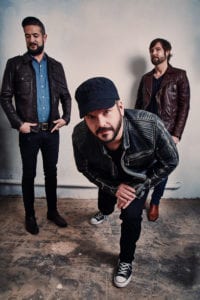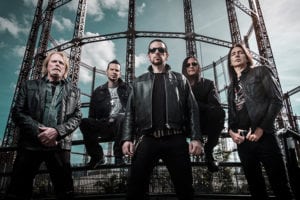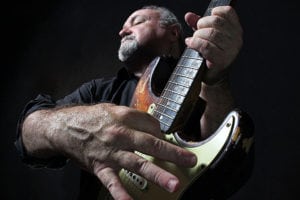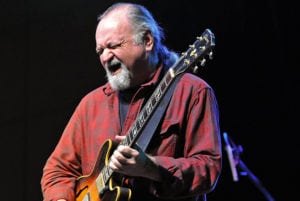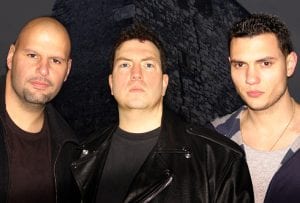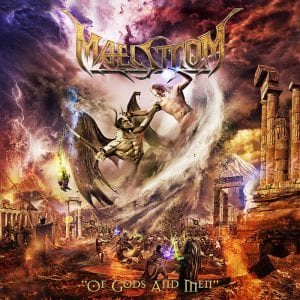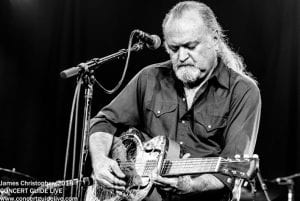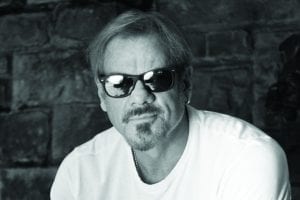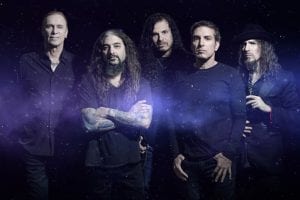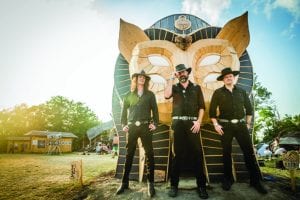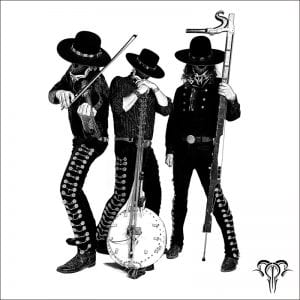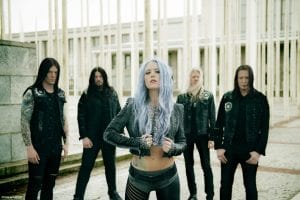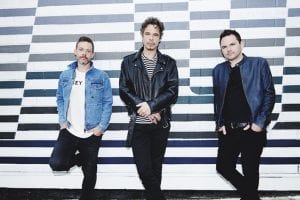Looking back: THE RECORD COMPANY 2018 interview…
The Record Company, a power trio known for their blues-styled rock, are coming to California to finish their current 2018 tour. The three-man group play at the House of Blues in San Diego Nov. 9 and The Wiltern in Los Angeles Nov. 10.
Chris Vos, the band’s lead vocalist and who also provides guitar instrumentals for The Record Company’s songs, says he looks forward to these two shows. The region is the home of Vos who says there could be no better place to end his group’s current tour.
“I love California,” Vos proclaims. “I love the people. I love the open-mindedness. I love how everybody just is such entertainment aficionados. They all know and they’ve all been around the block. It’s great. I just simply enjoy being in a place where I can go when I’m home and see any number of different type of inspiring entertainment or inspiring natural beauty.”
It’s also in SoCal, specifically in Los Angeles, that The Record Company first formed in 2011. The band’s roots go back to 2010 though as that’s when Vos first met Alex Stiff, the group’s bass player, who took a liking to the music Vos had produced.
“He heard what I had done previously,” Vos recalled. “He liked it and invited me to hang out. He was having a little get together with some friends. He has a huge pile of vinyl he’s amassed over the years. We just went over there and spun some records and struck up a friendship.”
It wasn’t until after a later meeting with Stiff and Marc Cazorla, who would become the group’s drummer, that the idea to form a band began.
“We were just listening to some records one evening,” Vos said. “We had the speaker in the window and sitting out on the back porch and we just decided ‘hey, let’s get together, hang some microphones in the living room and record it and see what it sounds like’, and we liked it.”
From there the group began playing locally and self-released their first music as a 7’’ single vinyl in March of 2012. However, the group’s tenacity and innovation has helped the group finally reach the musical mainstream earning critical praise, musical appearances in film and TV and even earned the group a Grammy nomination in 2017 for Best Contemporary Blues Album Give It Back To You.
These accomplishments are owed to the group’s unique take on rock and roll best described as blues rock: a fusion genre combining elements of blues and rock. While this mixture isn’t new and has been around for years, Vos says that he and his bandmates, in composing their songs, do their utmost to make the music they produce as fresh and new as possible.
“We try to root out cliché as much as possible,” Vos explains. “It’s like, if I’m playing this melody on a guitar, it sounds like something I’ve heard a million times. But if we make it a bass-centric melody and we kind of lean on that, it all of a sudden sounds different. It sounds like something a little more fresh. We’re just always trying to find a way to root out those things and just find some new inspiration anywhere we can.”
Vos says that the biggest reward he gets from completing these songs, specifically the ones Vos and his fellow band members made for the group’s recent album All of This Life, is being able to play them live.
“It’s a thrill, a great thrill,” Vos enthused. “That’s one of the great rewards of recording an album is being able to take that music out to people and putting it out in front of them.”
Though Vos says he’s enjoyed playing in venues like the Red Rocks Amphitheatre and Madison Square Garden, he isn’t picky in where he likes to play live music.
“People always ask me what’s your favorite place to play and, I swear to god, this is not a cop-out, I say ‘wherever I am that day’,” Vos said. “Because that’s the only day you’re actually living.”
After the group’s upcoming Nov. 10 appearance in Los Angeles, Vos and the rest of The Record Company will not be touring again until March which will see them go to Europe.
“We have some pretty big shows that I unfortunately can’t say what they are,” Vos states. “But we’re going to be having a big announcement coming up very soon that’ll be at the beginning of the year for some more dates.”
Vos however says that The Record Company will keep playing music whenever opportunity allows in-between these tours and in the future.
“We’ll be doing summer festivals and just getting out there with some other bands and just keep on playing. We’ll play the whole country and play it again. We’ll go up to Canada, play there. Go overseas, play there. We’ll play anywhere they put us.”

